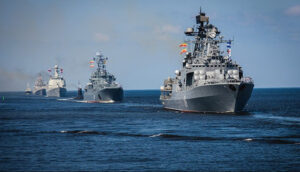The Joint War Committee – the marine insurance advisory board that assesses and designates regions of heightened risk for Lloyd’s – has added all territorial waters of the Russian Federation to its “listed areas” of war, piracy and terrorism hazards.

The designation requires the shipowner to notify their hull insurance underwriter in advance of a voyage to a covered area. The decision whether to insure the voyage or not, and the pricing of the coverage, remains a matter for the insurer to negotiate with the owner case-by-case.
JWC listing adds to the coverage cost of a voyage to the affected area, sometimes by a substantial amount. The premium for voyages to the northern part of the Black Sea, where there are ongoing hostilities related to the Russian invasion of Ukraine, was recently reported to be as high as seven percent of a vessel’s value per week of transit.
Read Also: Unreported COVID Cases In Africa Higher Than Expected – WHO
This increases the cost of doing business for all importers and exporters in an affected territory, with implications for the region’s economic competitiveness. For example, Nigeria (long plagued with piracy) has protested the JWC’s listing of its waters for adding to the shipping costs of its commerce. For Russia, the extra expenditure for shipping will raise the cost of moving Russian commodities like grain and oil, and the risk listing may dissuade some ship owners from entering Russian waters at all.
The JWC’s move is the latest in a growing list of problems for Russia’s shipping sector. Most Western name-brand vessel operators have exited the Russian market, with limited exceptions. Russian state ship owner Sovcomflot has been sanctioned by the United Kingdom. Russian-linked vessels are banned in Britain and Canada, and many bunker providers – including the world’s largest, Bunker Holding – are no longer contracting with Russian ship owners.
Kindly like us on Facebook















